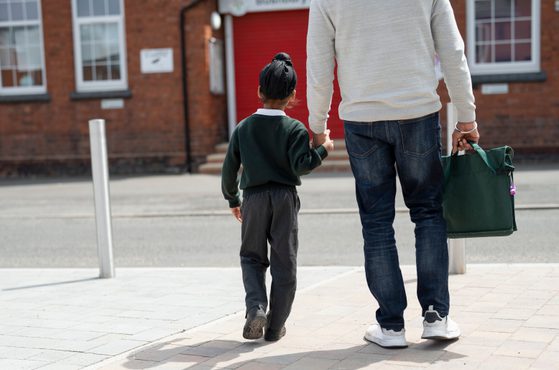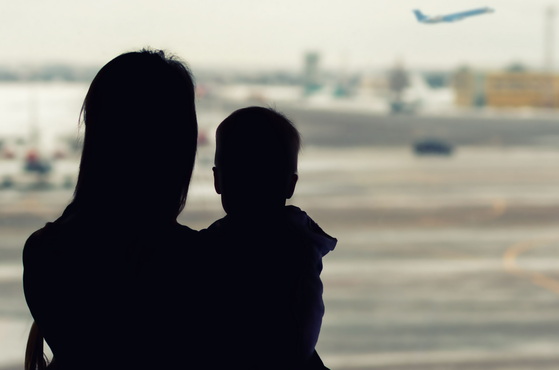What happens when separated parents can’t agree on a school?

We explore how decisions around schools are made, the processes available to help parents to reach agreement and the court’s approach when they can't.
Read more
We make the difference. Talk to us: 0333 004 4488 | hello@brabners.com
Our team includes some of the very few accredited international child abduction specialists in the UK.
Although 'abduction' is dramatic phrase, the reality is that any movement of a child across an international border can constitute child abduction if it's done without the relevant consents in place. In some circumstances, this can apply even when it's 'just for a short holiday'. Child Abduction can be a criminal offence (as well as a civil offence) and a family law matter — so it's important to know exactly where you stand. Plus — contrary to popular belief — you can still be considered to have abducted your child if you're their primary carer.
Child abduction usually covers two main categories. The first is trying to prevent an abduction if you're worried that there may be a risk of this happening. The second is taking steps to secure the urgent return of a child to their home after a disputed removal or retention has taken place. Both situations can be legally complex and often need to be undertaken quickly.
Abduction (and abduction proceedings) are different to child relocation or what are often called 'Leave to Remove' applications. Such applications address the issue of permission to go abroad on either a temporary or permanent basis. Abduction proceedings are about when travel is going to happen or has happened without permission.
Abduction proceedings are often (but not exclusively) referred to as 'Hague Convention' proceedings. This refers to the 1980 Hague Convention on the international movement of children, which governs much (but not all) of how abductions are addressed internationally. In many cases, the law set out in the Hague Convention will be what the court considers in deciding whether to return a child to their home state. Whether the Hague Convention applies will depend on which countries are involved. However, abductions can often be referred to in general terms either as 'Hague' or 'Hague Convention' proceedings (or even 'Inherent Jurisdiction' proceedings).
Our specialist team has extensive experience in urgent applications to prevent or resolve an abduction. We act for clients all over the UK and across the world. We also work closely with specialist international solicitors to ensure a fully joined-up approach.
Whether you're a parent who's being accused of abducting your child or the 'left-behind' parent, abduction cases can feel frightening and confusing.
Our expert family law team is recognised by The Times Best Law Firms and includes some of the few accredited specialists in the area of child abduction. We're here to support and advise you in these difficult situations. Whether you think your child is at risk, you need to get your child back after they've been taken or you’ve been accused of child abduction yourself, we can help and guide you on the best course of action.
Talk to us today by giving us a call on 0333 004 4488, sending us an email at family@brabners.com or completing our contact form below.

It’s essential that expert advice is sought at the earliest opportunity where there has been — or where there's potential for there to be — child abduction, because important tactical decisions and procedural steps often need to be taken.
If your child is abducted, it's important to take legal action quickly to avoid any potential difficulties in proceedings or delay the child being returned. Similarly, if you've brought a child to the jurisdiction and are served with court papers in relation to abduction, it’s important to engage in those proceedings and obtain specialist advice urgently to ensure that your case is approached appropriately.
The international movement of children can be a complex area of law. What you can and can't do will depend on who has parental responsibility (PR) — which in some countries may be referred to as 'parental rights' or 'custody' — the laws of the country you live in and whether there are any court orders in place, along with what level of knowledge or agreement there was with the other parent or holders of PR.
If you're considering going abroad with your child — especially to live — it's important to obtain legal advice if you're unsure of whether you have the relevant authority. If necessary, an application for Leave to Remove can be made — whether that's for a holiday, a specified period of time or permanently.
Abduction occurs if the move takes place without the necessary consent or permission in place.
It can take two forms:
“Cara Nuttall is an expert in domestic and international children cases, including abduction and surrogacy.”
The Legal 500 2026

There are dedicated laws in place to address child abduction. The aim is resolve (as quickly as possible) whether the child should be returned home — and if so, whether any conditions apply. It's important to note that separately abduction (whether removal or retention) can be a criminal offence, as well.
The most significant law covering child abduction is the 1980 Hague Convention on Child Abduction. The Hague Convention covers in the region of 100 countries and sets out a uniform way in which applications should be dealt with. In some countries, the Hague Convention will supplemented by the 1996 Hague Convention or European legislation. There are also specific arrangements and protocols with some countries that aren't a party to the Convention. If the Hague Convention doesn't apply, the case will usually be dealt with under the Inherent Jurisdiction of the High Court.
Abduction proceedings are different to standard children proceedings. They don't consider the merits of different arrangements or each parent in the same way, instead focusing on whether the child has been removed from their home state — and if so, whether they should be returned even if there'll then be further proceedings in the home country to decide what the long term arrangements should be. This is known as 'summary return'.
If a case is dealt with under the Hague Convention, legal aid is available for the 'left behind' parent. Whether or not the alleged abductor qualifies for legal aid will depend on a range of factors, including financial means.
Child abduction proceedings usually move quickly and hearings can take place on short notice. Time is often of the essence and documents may need to be prepared quickly. Abduction/Inherent Jurisdiction proceedings always take place in the High Court.
“Brabners is noted for its expertise in wealth protection, financial remedy, children, international and fertility work.”
The Legal 500 2026
“Brabners has one of the North of England’s largest family law teams, with expertise across financial, children, international and fertility work.”
The Times Best Law Firms 2025
“Brabners is easily the premier family law service in Liverpool, Manchester and the surrounding area. They have enormous strength in depth and their first-rate lawyers cover the most serious and complex matters.”
Legal 500 2025 client feedback
“The ’superb’ Jo-Anna Jellings is particularly sought after for children matters.”
The Legal 500 2025
“Joe Ailion [has] a depth of understanding and empathy rarely seen in a solicitor... His honest and straightforward advice, coupled with a genuine warmth, created a sense of security for our family during a tumultuous time. For us, Joe is not just a solicitor — he’s a beacon of hope and reassurance.”
Family law client

Most cases start with an application for summary return. This is a request that the child is returned to their home country as soon as possible. Where necessary, additional preliminary applications can be made to help locate a child — for example, using government, mobile phone or banking records or for all travel documents to be seized to prevent onwards flight.
Usually, the application will be made in the country the child has been taken to (or retained in). Yet in some cases, the application will be made in the original home state.
An application for summary return will set out the basis on which it's claimed that an unlawful removal or retention has occurred. The parent who has taken the child will then need to confirm whether or not they seek to defend the application.
There are limited defences available. These are strictly defined and include (in simplified terms):
Depending on whether any defences are run — and if so, which one(s) — the court will hear technical legal arguments and receive written evidence from the parties before making a decision on whether or not the child should be returned. Despite the serious nature of abduction proceedings, the court doesn't always hear oral evidence from the parents — whether this is permitted will depend on the circumstances of the case. It's common for left behind parents to attend hearings remotely if they need to. However, in some circumstances legal aid can assist with the costs of travelling to court. Depending on the issues in the case, the court may also receive a report from Cafcass and/or the child may be separately represented.
The court can order an immediate return or make a return subject to certain conditions (including protective measures where domestic abuse has been an issue). The court can refuse to make a return if a defence is successfully run. Any return is usually ordered to take place quickly after the order is made. Our specialist team has acted in a number of significant cases addressing whether a return should take place and if so, on what terms.




We explore how decisions around schools are made, the processes available to help parents to reach agreement and the court’s approach when they can't.
Read more

We share some top tips to help families to co‑parent amicably and organise child contact arrangements during the festive period.
Read more

The President of the Family Division has released a toolkit to support family Judges when writing to children.
Read more

The Family Justice Council has released new guidance on responding to a child’s unexplained reluctance, resistance or refusal to spend time with a parent and allegations of alienating behaviour.
Read more

Associate and family law specialist Joe Ailion explains what the process of seeking parental responsibility involves for extended family.
Read more

Here, Jo-Anna Jellings explains how a domestic abuse defence can be used to block a child’s return under the Hague Convention.
Read more

Our Head of Family Cara Nuttall offers her expert guidance to parents whose ex-partner hasn’t returned their child after a holiday or contact.
Read more

The addition of VAT on school fees will be a concern for some separated families, where a parent may be obliged to pay school fees as part of a court order.
Read more

Our family law experts represented a high-profile international footballer in court proceedings concerning financial support for his child.
Read more

Find answers to our most frequently asked questions about children law from our expert family solicitors.
Read more

Here we examine how costs orders and awards are handled in private family law cases.
Read more

We explore the options for separated parents who differ in their approach to sharing content of their child online.
Read more

Actress Sophie Turner has made an application to a court in New York for the return of her two children to the UK.
Read more

We explain the rules around parents relocating with children and what the courts look for when granting permission.
Read more

In this article Cara Nuttall looks at potential legal requirements when international parents separate.
Read more

In this article we look at potential legal requirements when parents separate and wish to relocate.
Read more

In this article Cara Nuttall looks at options for parents worried about the 'custody' of their child.
Read more

If you believe that you should receive a higher amount of child maintenance, you may have legal recourse.
Read more

Consent orders formalise the agreement between parents for looking after their children following a divorce.
Read more

Schedule 1 of the Children Act 1989 gives the court the power to make orders for financial provision for children.
Read more

Our independence allows us to be objective, principled and provide a service with heart and character.
We’re on a mission to make the difference for our clients, people and communities. Proudly anchored in the North since 1815, we serve all of England and Wales.

Northern Ambition
The collaborative network for purpose-led businesses. We’re building a more sustainable and innovative tomorrow.

Sustainable Business
In 2022, we proudly became the UK’s largest law firm (and the first outside London) to become B Corp certified.

Community Impact
We channel the energy of our public-spirited people and clients towards improving our local communities.
Loading form...